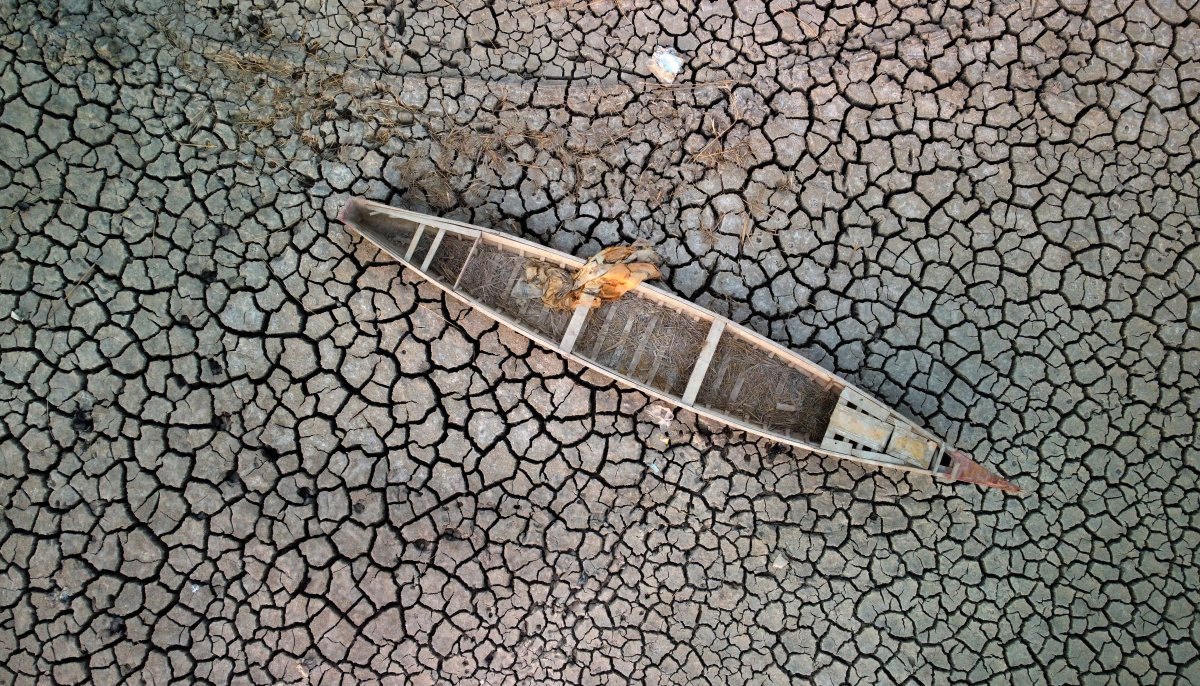In Iraq this past spring, the air sometimes was orange. Not the sky, the air. It looked like what I imagine Mars looks like from the planet's surface.
Dust was the culprit, and it was everywhere. One day in May, the Health Ministry declared an emergency, schools were shuttered, Baghdad's governor suspended work and several provinces mandated a public holiday to keep people safe.
Iraqis have dealt with a lot over the last 50 years—a brutal dictator followed by a bloody war followed by savage terror at the hands of ISIS. Climate change may be what dominates our next 50 years.
In fact, it's dominating our lives right now, and we need help addressing it. The U.N. puts Iraq in the top five countries most impacted by climate change.
Look where we're starting from. Over two weeks this summer, the lowest high temperature was 99 degrees Fahrenheit, and the highest high was 115 degrees. The lowest the temperature got was 79 degrees, and that was in the wee hours of one morning.
Yes, we are used to the heat. But it does seem to be getting worse, and it is making a dry country even drier. The drought this year has gotten so bad that we uncovered ancient underwater cities.
Dust storms have long been a problem in Iraq, but they have gotten more frequent, and I would venture, more severe. In 20 years, the Ministry of the Environment warns, Iraq could see sandstorms for 272 days out of every year. By 2050, it could be up to 300 days.
The irony is not lost on us that we are pumping oil out of our dusty ground to be burned as fuel, releasing the very greenhouse gases that cause our air to be hotter and dustier. Now there is pressure to pump even more oil out of the ground to meet global demand and lower prices.
As a developing country, it puts us in a bind. We use the revenues from our oil industry to provide for our citizens and improve their lives with food, infrastructure, education and security.

Iraq is unable to quickly make the large-scale changes to our economy needed to drastically change our situation. Instead, we are working on incremental change.
We are growing our solar energy sector to take advantage of our abundant sun, including at least 7.5 GW worth of solar projects in the works. Renewable energy should account for about one-third of Iraq's energy mix by 2030.
But water is of even more immediate concern. This precious resource is disappearing at an alarming rate in Iraq, with water levels falling by 60 percent more in 2022 than the previous year, according to the Ministry of Water Resources.
The Tigris and Euphrates rivers, whose valley runs like a backbone through Iraq, are losing water each year, and the Ministry warns that Iraq could become a "land without rivers by 2040."
These shortages are hurting Iraqi farmers and threatening the lives of millions of Iraqi citizens.
In response, the government is working to modernize farming techniques and create a more efficient irrigation system. It also is working on agreements with our neighbors, from which 80 percent of our water originates.
But that simply is not enough. We need more help from the United States, other international partners and multilateral institutions. Help us by reducing global greenhouse gases, aiding us in securing our water supplies, investing in renewable energy projects here in Iraq, and supporting the diversification of our economy.
We need the world's help in dealing with this very real and very present threat. Otherwise, the Cradle of Civilization will become known as the Cauldron of Climate Change.
Dr. Jassim Al-Falahy is Iraq's minister of environment and special envoy for climate change.
The views expressed in this article are the writer's own.
Uncommon Knowledge
Newsweek is committed to challenging conventional wisdom and finding connections in the search for common ground.
Newsweek is committed to challenging conventional wisdom and finding connections in the search for common ground.
About the writer
To read how Newsweek uses AI as a newsroom tool, Click here.






